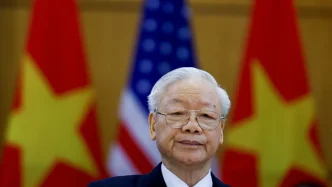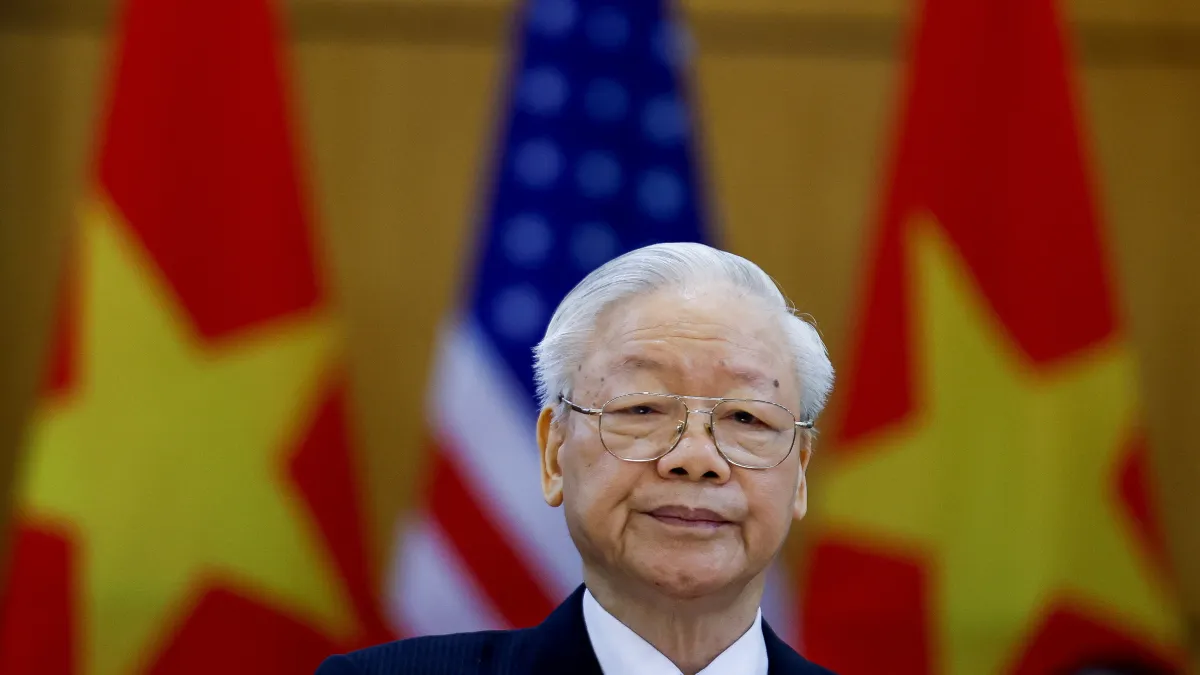Ha Noi – Vietnam’s political sphere is abuzz with speculation following recent developments within the Communist Party of Vietnam (CPV), as the nation approaches key leadership transitions ahead of the 2026 National Congress. While no official announcements have been made, sources close to the government suggest potential shifts in the politburo, raising questions about the direction of Vietnam’s domestic and foreign policies in the coming years.
Whispers of Change in Ha Noi
The capital, Ha Noi, often the epicenter of Vietnam’s political machinations, has seen a flurry of closed-door meetings in recent weeks. Analysts point to the possibility of a reshuffle within the CPV’s top ranks, with names of potential successors to key positions circulating among political observers. Though details remain unconfirmed, the speculation centers on the roles of the General Secretary and other influential figures in the politburo, a body responsible for steering the country’s socialist-oriented market economy.
According to a statement reported by Vietnam News on June 20, 2025, a government spokesperson emphasized the importance of stability during this period: “The Party remains committed to unity and progress for the Vietnamese people” said the official. However, the lack of specificity in such statements has only fueled further curiosity about what might be unfolding behind the scenes.
Historical Context of Leadership Transitions
Vietnam’s political system, rooted in the single-party framework of the CPV, places immense importance on leadership transitions. Historically, these moments have been carefully orchestrated to project continuity and consensus, even as internal debates shape the future. The National Congress, held every five years, serves as the stage for announcing new leaders and policy directions. With the 14th Congress approaching in 2026, the current speculation may be a precursor to significant announcements.
In the past, transitions have occasionally led to subtle shifts in policy. For instance, the appointment of Nguyen Phu Trong as General Secretary in 2011 marked a renewed focus on anti-corruption campaigns, which have since become a hallmark of his tenure. If the current rumors of a new face at the helm are true, they could herald changes in priorities—potentially in areas such as economic reform or foreign relations, particularly with major partners like China and the United States.
Economic Implications of Political Uncertainty
Leadership speculation often carries economic ramifications, as Vietnam continues to position itself as a manufacturing hub in Southeast Asia. Investors and businesses closely monitor political developments for signs of policy shifts that could affect trade agreements, foreign direct investment, or labor regulations. A report from Reuters on June 22, 2025, noted that Vietnam’s export-driven economy remains robust, with a projected GDP growth of 6.5% for the year, but cautioned that political uncertainty could impact long-term confidence.
Local business owners in Ho Chi Minh City, the country’s economic powerhouse, have expressed mixed sentiments. “We need clarity on who will lead and what their vision is for opening up markets further” said Tran Van Minh, a textile exporter. Such concerns highlight the interconnectedness of political stability and economic progress in a nation that has seen rapid growth over the past two decades.
One area of particular interest is Vietnam’s approach to infrastructure development. Recent projects, such as the expansion of the North-South Expressway, have been funded with significant investments, including loans valued at 500 billion Vietnamese Dong (US$20 million as of June 25, 2025). Any change in leadership priorities could influence the pace or funding of such initiatives, with ripple effects on regional economies.
Foreign Policy in the Balance
Vietnam’s foreign policy, often described as a delicate balancing act between major powers, could also be influenced by a leadership transition. The country has maintained a “bamboo diplomacy” approach, bending with the winds of international politics while staying rooted in its principles. This strategy has allowed Vietnam to strengthen ties with both the United States and China, despite historical tensions with the latter over territorial disputes in the South China Sea.
Speculation about a more reformist or conservative leader taking the reins has led to debates among analysts. Some suggest a reformist figure might push for closer alignment with Western economies, potentially accelerating trade agreements like the Comprehensive and Progressive Agreement for Trans-Pacific Partnership (CPTPP). Others caution that a more traditionalist leader could prioritize maintaining strong ties with China, Vietnam’s largest trading partner.
A post on X by @AsiaPolicyWatch on June 23, 2025, captured the sentiment of many observers: “Vietnam’s next leader will face tough choices in navigating US-China rivalry. Bamboo diplomacy will be tested.” While such opinions reflect public discourse, it remains to be seen how any new leadership might approach these complex dynamics.
Public Sentiment and the Role of the Vietnam Fatherland Front
On the domestic front, public sentiment appears cautiously optimistic yet reserved. The Vietnam Fatherland Front, a political coalition under the CPV’s umbrella that represents various mass organizations, has been active in engaging communities ahead of the Congress. Its role in channeling public opinion to the Party leadership underscores the importance of grassroots feedback in shaping policy, even within a centralized system.
Residents of Ha Noi and surrounding areas have voiced a desire for continued economic growth alongside social protections. “We want leaders who understand the challenges of rising costs and can keep jobs growing” said Nguyen Thi Lan, a market vendor in the capital. Such voices may play a subtle but significant role in influencing the Party’s agenda as it prepares for the future.
Challenges of Speculation and Transparency
One challenge in reporting on Vietnam’s political developments is the opacity surrounding internal Party decisions. Unlike democratic systems with public campaigns or debates, Vietnam’s leadership selection process occurs largely behind closed doors, with outcomes revealed only at key moments like the National Congress. This lack of transparency can amplify speculation, as analysts and the public alike attempt to piece together limited information.
For now, any claims about specific individuals or policy shifts remain unverified. As a matter of journalistic integrity, it must be stressed that no evidence confirms the identities of potential successors or the exact nature of any upcoming changes. Conditional language is necessary when discussing such matters, and readers are encouraged to await official announcements from trusted sources like the CPV or state media outlets.
Looking Ahead to 2026
As Vietnam moves closer to the 2026 National Congress, the current wave of speculation serves as a reminder of the high stakes involved in leadership transitions. The decisions made in the coming months could shape the country’s trajectory for years, influencing everything from economic reforms to international alliances. For now, observers both within and outside Vietnam can only watch and wait, piecing together clues while respecting the boundaries of unconfirmed information.
In Ha Noi, the heart of the nation’s political life, the air is thick with anticipation. Whether the rumors of change materialize into tangible shifts or fade into the background, one thing is certain: Vietnam’s path forward will continue to captivate the attention of the global community.
















